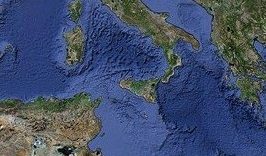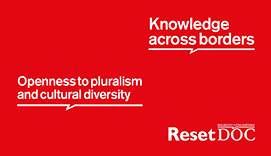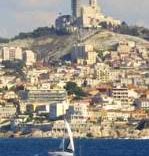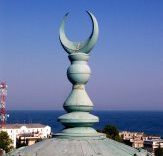Interview: Nina zu Fürstenberg
Film: Anna Fanuele
Full transcript of the video
Being a historian I believe that one of the reasons for today’s problems with what we call ‘dialogue among civilizations’ in the Mediterranean area – precisely between the northern and the southern shore – is the result of an imprecise basic vocabulary. That is why I am working on the construction of a sort of shared library: our authors and their authors, the pages we have read and those that our friends on the other side of the Mediterranean have read. But which are these 10 Mediterranean books which allow our discussion today to be one in which we understand one another?
I have chosen the end of the 15ht century and beginning of the 16th, so the beginning of modernity for us Europeans but also for the Islamic world. These authors asked themselves the same questions. But Asking the same questions – as in the case of Machiavelli with his ‘The Prince’ and on the other side Ibn Khaldoun with his ‘Introduction to the Universal History’ –does not necessarily mean finding the same answers. On the contrary, what is interesting and necessary in today’s dialogue is not to think that the same questions lead to the same answers, or even worse, that a single answer to a question is the only right answer. But the fundamental thing is that a common ground with shared questions actually exists.
When you start looking for these common questions – through the authors and the historical processes they have experienced –, mostly they have to do with the autonomy of politics, or with the possibility of a citizenship which is not based on external processes, on external legitimization, but which finds its legitimization in itself. This happened in the making of the Western empires, the Spanish Empire or later the Habsburgic, the Russian empire as well as in the construction of the “Mediterranean Empire” which is the Ottoman empire. Machiavelli on the one side and Ibn Khaldoun on the other face the necessity of a strictly political legitimization of these large entities in making, the need to build a citizenship in these new imperial spaces and an authority that religion alone could have never given.
What does it mean to be citizens when there are different religions? When a man of faith enters a political community, certainly he will not give up the importance of his beliefs… As Tocqueville explains, sometimes religious convictions can help a political community to set its aims in the long period, to make people think about more profound, ethically dense problems and solutions. But all this happens in a struggle, in a fight which is a civil discussion and never a principle of religious legitimation.
I believe that the beginning of this library, this fragment of ‘sharing’ of authors is today a useful step to try to understand each other.
This is what I mean with building a shared library, it means to ‘dig’ one another: each of us doesn’t need to bring his own texts, his own favorite author of his own shore, but on the contrary: he needs to have the courage to go and look inside the books and the pages of the others.





